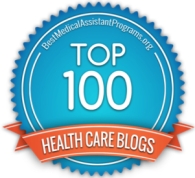Our fourth winning essay comes from Jorge Zárate Rodriguez of the Washington University School of Medicine:
The Delmar Boulevard is a main thoroughfare in St. Louis, where I go to medical school, that divides the city north and south. But it does more than that, it is also a remnant of the Jim Crow Era in St. Louis when many residential ordinances were passed preventing black people from renting or purchasing in white neighborhoods. The south of Delmar remains mostly white and the north mostly black to date. The Delmar Divide, as has been described in public health literature, is one of the starkest examples of health disparities: the life expectancy difference for St. Louisans living in adjacent zip codes on opposite sides of Delmar is 18 years.
In order to address health disparities in St. Louis and in the rest of the nation, large, broad-sweeping changes to the way we practice primary care are needed. Preventative medicine has become a hot topic in medical education as means to improve patient outcomes all whilst decreasing the cost of healthcare. However, medicine—as an institution—is not set up for this. To increase access to primary care, we need more primary care physicians. Loan-forgiveness programs for medical students choosing primary care, a re-evaluation of relative value units to more fairly compensate primary care doctors, and tax-deductions and financial incentives for hospitals and clinics investing in primary care and serving the underserved, would all go a long way to ameliorate the situation.
In addition to improving the quality of and access to primary care, we need to address the socioeconomic context that our patients live in. The role of the physician and her responsibility to her patient do not end at the hospital’s doorstep. What happens to our patients outside of the hospital should matter to any doctor claiming to practice patient-centered care. With that in mind, we must call on our fellow physicians and our allied health professionals to fervently advocate for much needed legislation that will impact our patients’ lives—starting with more rigorous gun control and more accountability for police who use excessive force, to ensuring access to health insurance and guaranteeing funding for programs like Children’s Health Insurance Program (CHIP).
As physicians, we owe it to our patients to demand for more protections for them, but a favorable legislative environment is not sufficient. Health promotion should go hand-in-hand with health prevention, and it requires educational interventions starting at a young age and through all levels of education, including adult education, to increase health literacy. Also necessary, is significant investment at the community level to make it easier for people to make healthier choices. Needs-assessment surveys can help determine what each community identifies as most pressing: setting up more spaces for exercise, subsidizing fresh vegetables to battle food deserts, replacing old infrastructure (like pipes polluted with lead), or extending public transportation, for example.
Finally, we also have a responsibility to mentor youth interested in science and medicine, especially from minority backgrounds, since they will be key in helping address health disparities in the future.

